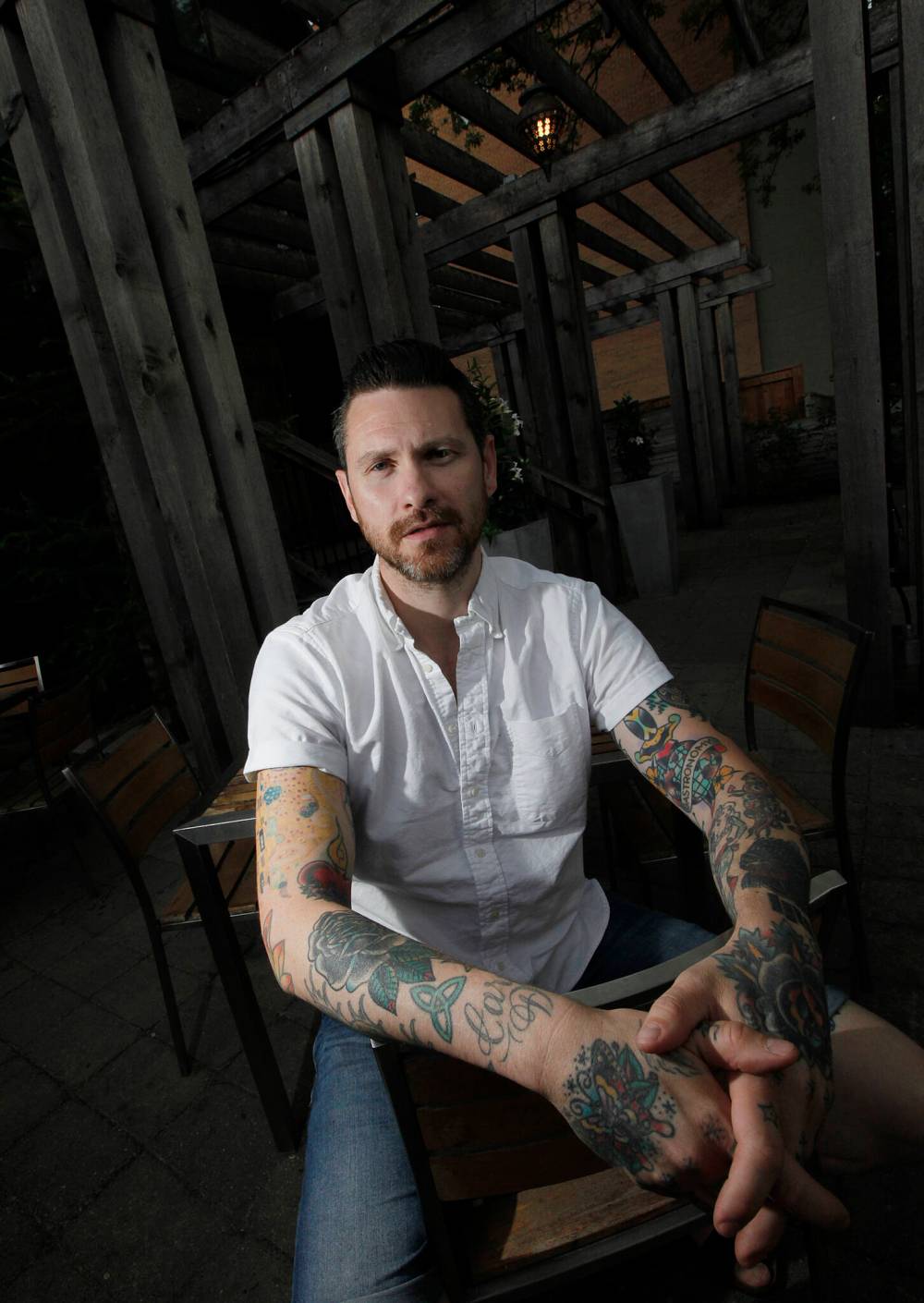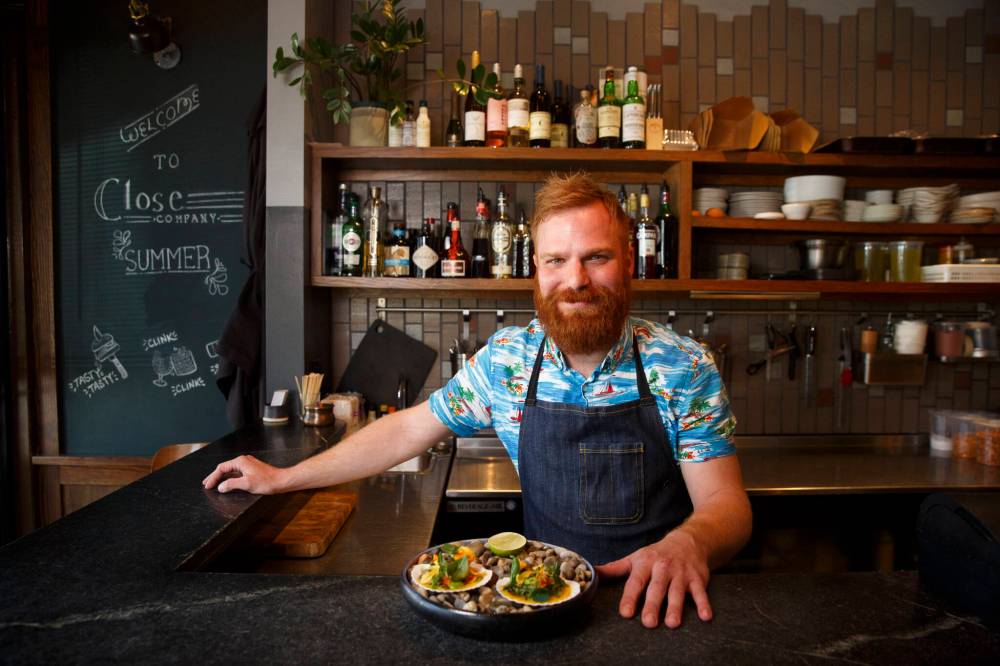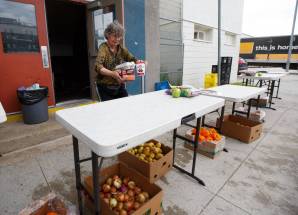Close Company closes Adam Donnelly, former owner of Segovia, plans to re-open tiny spot as Petit Socco next month
Read this article for free:
or
Already have an account? Log in here »
To continue reading, please subscribe:
Monthly Digital Subscription
$0 for the first 4 weeks*
- Enjoy unlimited reading on winnipegfreepress.com
- Read the E-Edition, our digital replica newspaper
- Access News Break, our award-winning app
- Play interactive puzzles
*No charge for 4 weeks then price increases to the regular rate of $19.00 plus GST every four weeks. Offer available to new and qualified returning subscribers only. Cancel any time.
Monthly Digital Subscription
$4.75/week*
- Enjoy unlimited reading on winnipegfreepress.com
- Read the E-Edition, our digital replica newspaper
- Access News Break, our award-winning app
- Play interactive puzzles
*Billed as $19 plus GST every four weeks. Cancel any time.
To continue reading, please subscribe:
Add Free Press access to your Brandon Sun subscription for only an additional
$1 for the first 4 weeks*
*Your next subscription payment will increase by $1.00 and you will be charged $16.99 plus GST for four weeks. After four weeks, your payment will increase to $23.99 plus GST every four weeks.
Read unlimited articles for free today:
or
Already have an account? Log in here »
Hey there, time traveller!
This article was published 14/07/2022 (1243 days ago), so information in it may no longer be current.
If you thought it was hard to get a table at the city’s smallest restaurant, just wait till it re-opens under new ownership next month.
Close Company occupied a 300-square-foot space on Stafford Street for six years. Beginning in August, it will re-open as Petit Socco, featuring Mediterranean cuisine.
“We’re really excited,” said Adam Donnelly, the new co-owner.

Donnelly ran the award-winning Segovia Tapas Bar and Restaurant in Osborne Village before closing in 2020. He baked for several restaurants during the pandemic and began talking with Close Company’s owners last January.
The tiny restaurant had closed in December.
“I’ve always actually really liked (Close Company)… I really liked the size of it,” Donnelly said. “I… have dreamt about having a really small space where it’s just like me cooking.”
“It’s like you’re eating in my home, because it’s so small.”
He named the restaurant after a square in Morocco known for its harbouring of expats. It’s a place of creativity and artistic vision, he said.
He and Courtney Molaro, his partner, will cook and manage the diminutive diner. They plan to open on a four-day-per-week schedule next month — from Wednesday through Saturday, Donnelly said.
Cam Chabot, a co-owner of the former Close Company, relayed his happiness.
“Someone with really good credentials… sees the value in the space, in the neighbourhood,” Chabot said.

He and two business partners transformed the small Crescentwood space from a barbershop into a restaurant.
The kitchen is between 20 and 30 square feet, Chabot said.
“We wanted to build something that the community could be proud of,” he said, adding he’d envisioned a fun atmosphere with accessible prices.
The place was full at 12 customers. Diners might eat seafood towers or hamachi crudo, washing it down with a “Steve” (a cocktail named after the building’s former barber).
Dustin Pajak steered the menu as head chef.
“I enjoyed every part of working at Close Company,” he wrote in an email.
“I enjoyed every part of working at Close Company.” – Chef Dustin Pajak
He’s now cooking for a restaurant in Toronto’s Financial District.
“Every business has its highs and lows but… we were able to achieve so much in a small space,” Pajak wrote.
Pandemic-era closures hit the business. The final blow was last December’s restrictions, according to Chabot.
Close Company was booked for dinner parties in December and January, Chabot said. When the province announced 50 per cent capacity limits for restaurants, Close Company closed its doors.
“We had to cancel all of it, because everybody wanted to bring 10 or 12 people,” Chabot said.
With restrictions, the eatery could accept five or six.
“The final closure in December was the… one that really just drove our staff to different areas.” – Cam Chabot
“That’s not worth it for us,” Chabot said.
Close Company had offered delivery throughout the pandemic, but it was mainly to keep staff busy — there were around five employees at any given time, Chabot said.
“The final closure in December was the… one that really just drove our staff to different areas,” he said.
Chabot and his business partners have full-time jobs elsewhere; Close Company was “a project,” he said.
Donnelly approached the trio in January to discuss the property.
“It became a good opportunity to sell,” Chabot said.
The sale went through in June, and Close Company announced its end. It hadn’t opened for a day in 2022.
Even so, it ranked No. 83 on this year’s Canada’s 100 Best Restaurants List.
“It’s obviously a reflection of their travels and recommendations from 2021,” Chabot said. “Demand was still very, very high (during the pandemic).”
Chabot is leaving with no regrets.
“We built something that didn’t exist, and we won some awards,” Chabot said. “It was a testament to the staff and the chef’s creativity and our stick-to-itiveness… It feels like we accomplished something.”
Impacts from the pandemic, plus inflation, supply chain issues and increased cost of labour has many restaurateurs rethinking their businesses, said Shaun Jeffrey, CEO of the Manitoba Restaurant and Foodservices Association.
“We’re still reeling from the (pandemic), and the return to business just hasn’t been there for a lot of restaurants,” Jeffrey said. “This is make it or break it time.”
Some customers haven’t yet returned — there’s a lack of consumer confidence — and many can’t afford dining out with the cost of seemingly everything rising, Jeffrey said.
“(Restaurants are) considered a luxury, and people are cutting (them) out,” he said, noting there are many people returning, but not to a pre-pandemic extent.
Provincial programs for restaurants are “not existent anymore,” Jeffrey said.
Province-led initiatives to get Manitobans eating out are needed, he said.
gabrielle.piche@winnipegfreepress.com

Gabby is a big fan of people, writing and learning. She graduated from Red River College’s Creative Communications program in the spring of 2020.
Our newsroom depends on a growing audience of readers to power our journalism. If you are not a paid reader, please consider becoming a subscriber.
Our newsroom depends on its audience of readers to power our journalism. Thank you for your support.








